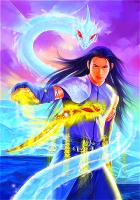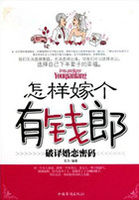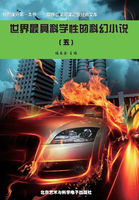The visit to Clifton was, in fact, a blessed interval in my strenuous childhood. It probably prevented my nerves from breaking down under the pressure of the previous months. The Clifton family was God-fearing, in a quiet, sensible way, but there was a total absence of all the intensity and compulsion of our religious life at Islington. I was not encouraged--I even remember that I was gently snubbed--when I rattled forth, parrot-fashion, the conventional phraseology of 'the saints'. For a short, enchanting period of respite, I lived the life of an ordinary little boy, relapsing, to a degree which would have filled my Father with despair, into childish thoughts and childish language. The result was that of this little happy breathing-space I have nothing to report. Vague, half-blind remembrances of walks, with my tall cousins waving like trees above me, pleasant noisy evenings in a great room on the ground-floor, faint silver-points of excursions into the country, all this is the very pale and shadowy testimony to a brief interval of healthy, happy child-life, when my hard-driven soul was allowed to have, for a little while, no history.
The life of a child is so brief, its impressions are so illusory and fugitive, that it is as difficult to record its history as it would be to design a morning cloud sailing before the wind. It is short, as we count shortness in after years, when the drag of lead pulls down to earth the foot that used to flutter with a winged impetuosity, and to float with the pulse of Hermes. But in memory, my childhood was long, long with interminable hours, hours with the pale cheek pressed against the windowpane, hours of mechanical and repeated lonely 'games', which had lost their savour, and were kept going by sheer inertness. Not unhappy, not fretful, but long,--long, long. It seems to me, as I look back to the life in the motherless Islington house, as I resumed it in that slow eighth year of my life, that time had ceased to move.
There was a whole age between one tick of the eight-day clock in the hall, and the next tick. When the milkman went his rounds in our grey street, with his eldritch scream over the top of each set of area railings, it seemed as though he would never disappear again. There was no past and no future for me, and the present felt as though it were sealed up in a Leyden jar. Even my dreams were interminable, and hung stationary from the nightly sky.
At this time, the street was my theatre, and I spent long periods, as I have said, leaning against the window. I feel now that coldness of the pane, and the feverish heat that was produced, by contrast, in the orbit round the eye. Now and then amusing things happened. The onion-man was a joy long waited for.
This worthy was a tall and bony Jersey Protestant with a raucous voice, who strode up our street several times a week, carrying a yoke across his shoulders, from the ends of which hung ropes of onions. He used to shout, at abrupt intervals, in a tone which might wake the dead:
Here's your rope . . . .
To hang the Pope . . . .
And a penn'orth of cheese to choke him.
The cheese appeared to be legendary; he sold only onions. My Father did not eat onions, but he encouraged this terrible fellow, with his wild eyes and long strips of hair, because of his godly attitude towards the 'Papacy', and I used to watch him dart out of the front door, present his penny, and retire, graciously waving back the proffered onion. On the other hand, my Father did not approve of a fat sailor, who was a constant passer-by. This man, who was probably crazed, used to wall very slowly up the centre of our street, vociferating with the voice of a bull, Wa-a-atch and pray-hay!
Night and day-hay!
This melancholy admonition was the entire business of his life.
He did nothing at all but walk up and down the streets of Islington exhorting the inhabitants to watch and pray. I do not recollect that this sailor-man stopped to collect pennies, and my impression is that he was, after his fashion, a volunteer evangelist.
The tragedy of Mr. Punch was another, and a still greater delight. I was never allowed to go out into the street to mingle with the little crowd which gathered under the stage, and as Iwas extremely near-sighted, the impression I received was vague.
But when, by happy chance, the show stopped opposite our door, Isaw enough of that ancient drama to be thrilled with terror and delight. I was much affected by the internal troubles of the Punch family; I thought that with a little more tact on the part of Mrs. Punch and some restraint held over a temper, naturally violent, by Mr. Punch, a great deal of this sad misunderstanding might have been prevented.
The momentous close, when a figure of shapeless horror appears on the stage, and quells the hitherto undaunted Mr. Punch, was to me the bouquet of the entire performance. When Mr Punch, losing his nerve, points to this shape and says in an awestruck, squeaking whisper, ' Who's that? Is it the butcher? and the stern answer comes, 'No, Mr. Punch!' And then, 'Is it the baker?" No, Mr.
Punch! "Who is it then?' (this in a squeak trembling with emotion and terror); and then the full, loud reply, booming like a judgement-bell, 'It is the Devil come to take you down to Hell,' and the form of Punch, with kicking legs, sunken in epilepsy on the floor, --all this was solemn and exquisite to me beyond words. I was not amused-- I was deeply moved and exhilarated, 'purged', as the old phrase hath it, 'with pity and terror'.
Another joy, in a lighter key, was watching a fantastic old man who came slowly up the street, hung about with drums and flutes and kites and coloured balls, and bearing over his shoulders a great sack. Children and servant-girls used to bolt up out of areas, and chaffer with this gaudy person, who would presently trudge on, always repeating the same set of words--Here's your toys For girls and boys, For bits of brass And broken glass, (these four lines being spoken in a breathless hurry)A penny or a vial-bottell . . . .















